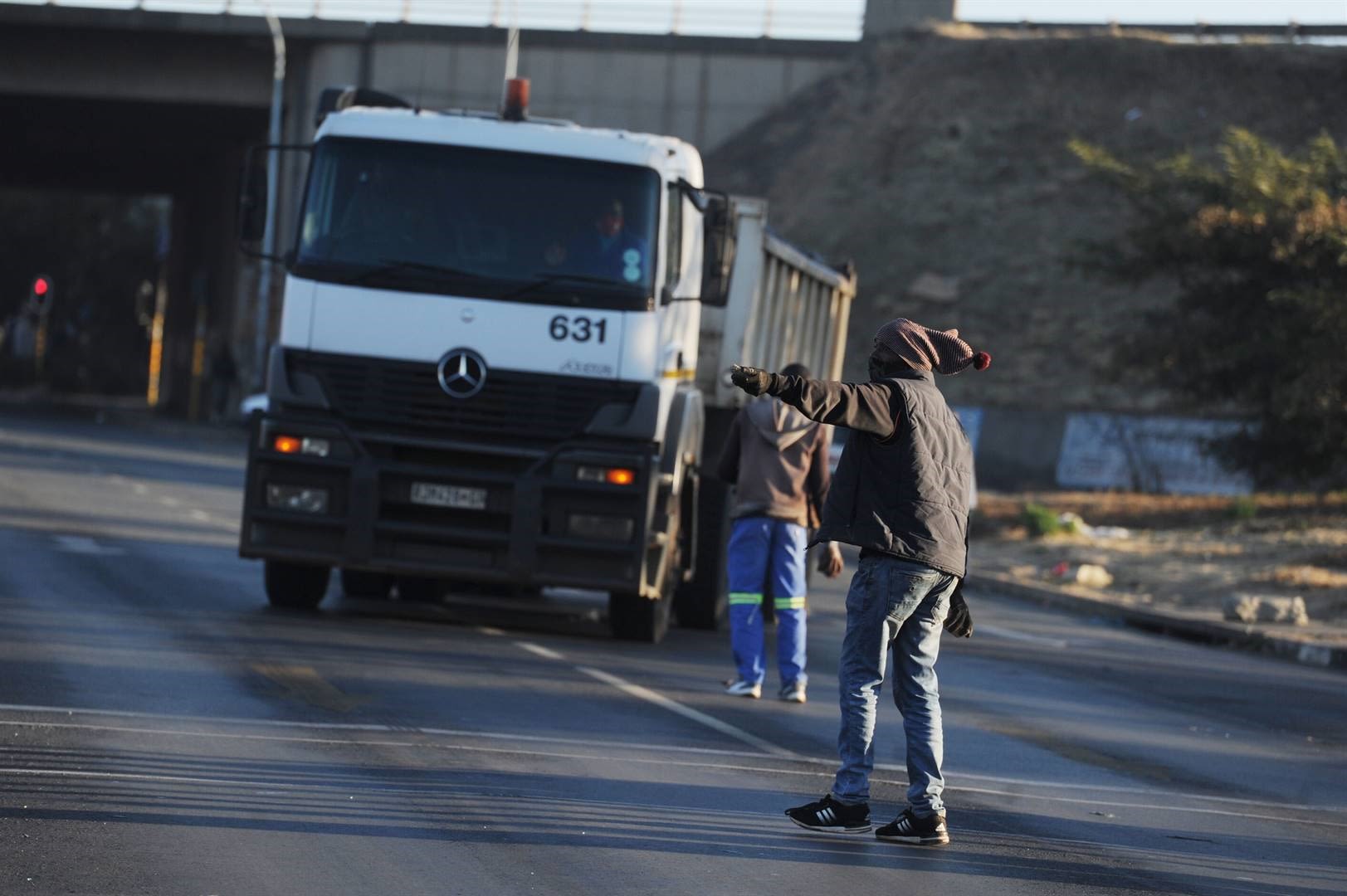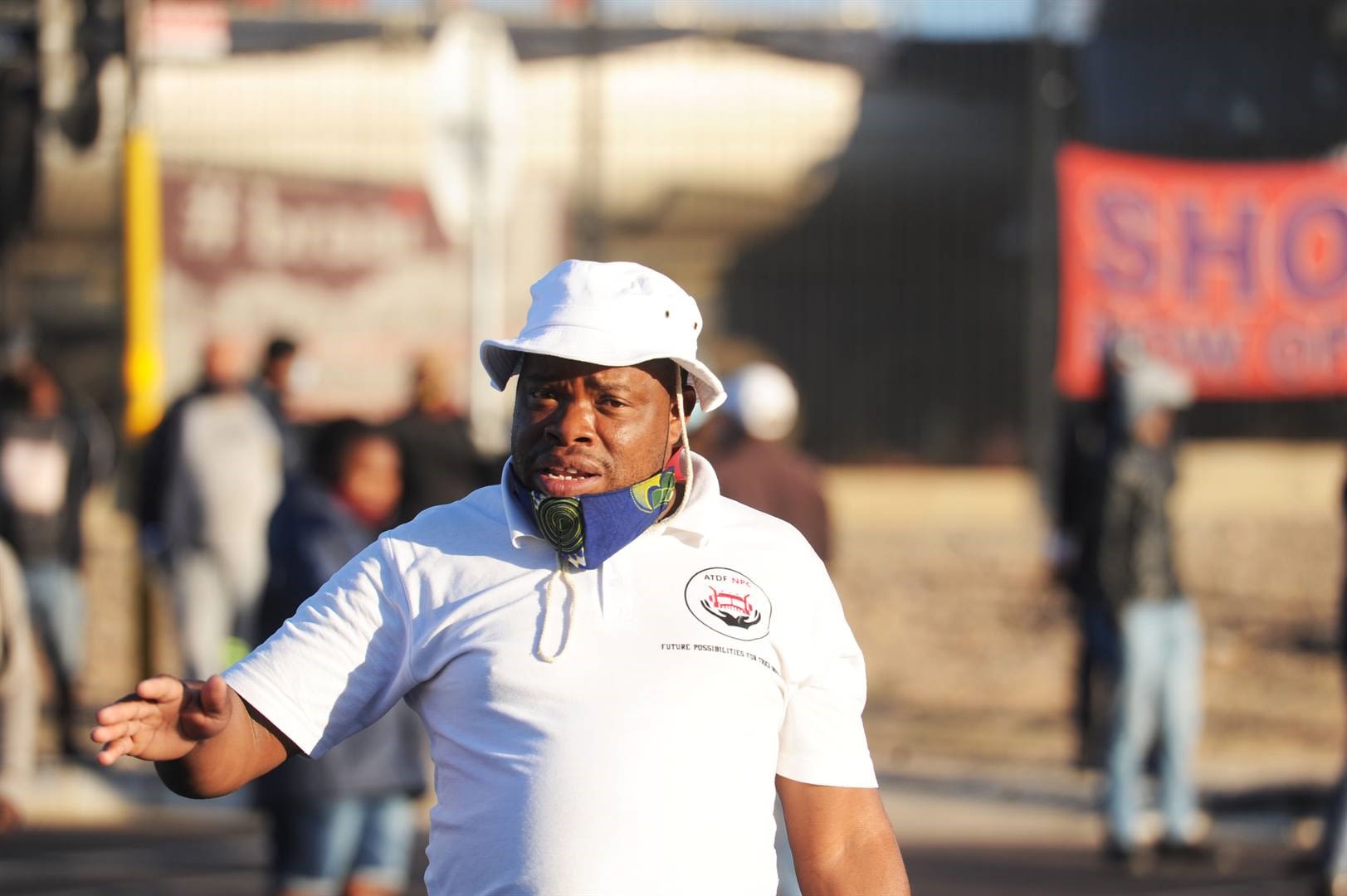‘Maybe you can understand why they’re angry’

Queues and delays caused by the verification of paperwork by immigration and customs officials are some of the challenges faced by South African truck drivers transporting goods across the borders into neighbouring countries.
That’s according to Doreen van Rooyen, an administrator for SA Long Distance Truckers, a business that started out as a Facebook page, aimed at keeping truck drivers safe through constant updates on accidents, disruptions and protests on the roads.
Despite the challenges, Van Rooyen said that “some South African truck drivers prefer driving in other African countries, because they feel it is safer to do so.
“Drivers can stop their trucks on the road and sleep – they will find their load still there in the morning. In South Africa, when a truck falls, people loot its goods and rob the driver instead of lending a helping hand,” she told City Press.
Where it all began
Last week, South African truck drivers embarked on a nationwide strike calling on government and trucking companies to prioritise hiring locals over foreign truck drivers.
Van Rooyen told City Press that the conflict between foreign and South African truck drivers began in 2017 in Durban.
“There was a transporter in Durban who was hiring foreign nationals and not reporting this to the bargaining council. Then there was another big company that did the same thing and the drivers found out.
“So 2018 was the first time there was chaos, but the strike seems to be a sporadic, once a year havoc,” she said. “To be honest, there are some companies that employ foreign drivers illegally, without valid work permits. That is exploitation.
READ: SA truck drivers threaten not to return to work: ‘We will allow foreigners in the driver’s seat’
“But if a person is in South Africa legally and paid the right rates then I don’t have a problem with that,” she added.
However, unlike the “sporadic” once a year havoc that Van Rooyen described, this year’s strike has been coupled with the Covid-19 coronavirus lockdown.
“The trucking industry is at the bottom level on the scale of importance. During the lockdown, I went and bought food so that I could prepare parcels for some of the drivers. With everything being shut down during levels 4 and 5, they couldn’t even buy a pie. These were the guys that fed the nation during the lockdown.
“Maybe you can understand why they’re angry,” she said.
When in Rome
Costa Mathalisa, a South African truck driver, drove across the border between 2006 and 2018.
He speaks Tshivenda and had to learn Shona, a language widely spoken in Zimbabwe “for my own protection, to convince them that I was one of them”.
For Mathalisa, “cross-border [travel] is a problem from start to finish”.
“Some of the worst experiences were when I was driving to Zimbabwe and Zambia. You feel arrested before you even cross the border.
“When you get to Zimbabwe, the first thing they want is money. They check your truck for anything they can fine you for. If there’s no problem, they will create it.
“They will even fine you for having a dirty truck and when you complain, you’ll hear them tell you that this is not South Africa. All they want is to milk you dry,” he said.
Mathalisa added that he supported the nationwide strike by South African truck drivers.
“South Africans are not welcome in other African countries, but because our country is a banana republic, we allow foreign nationals to come and work while our own citizens are unemployed.
“That is not okay,” he told City Press.
Taking the matter to court
Meanwhile, the All Truck Drivers Foundation secretary-general in Gauteng Mandla Mngomezulu, told City Press that they are planning to take Labour and Employment Minister Thulas Nxesi to court for “trying to change labour laws instead of applying them”.

Secretary of the All Truck Drivers Foundation Mandla Mngomezulu. Picture: Rosetta Msimango/City Press
Secretary of the All Truck Drivers Foundation Mandla Mngomezulu. Picture: Rosetta Msimango/City Press
“The minister said a task team would look into the matter. But this is not the first time we’ve heard this, and it’s never worked for us.
“For all we know, this task team will meet on the first day and we’ll never hear from them again. Today’s meeting had no way forward,” Mngomezulu said.
“Foreign nationals should only be employed on a scarce skills basis, but this hasn’t been the case. We hope to finalise the paperwork this week,” he added.
Van Rooyen said that they were concerned that other African countries would not allow South African truck drivers to cross their borders, given how their drivers are treated in South Africa.

Picture: iStock/Getty Images
Picture: iStock/Getty Images
“I don’t know what’s going to happen in the next few weeks.
“We have received communication that African countries may not allow South African truck drivers to cross their borders because of how foreign drivers are treated in South Africa.
“We don’t know the source of this information, but we’re worried. Some of the drivers have said that this could be payback time, while others say that nothing has happened in the past,” she said.
City Press had not received a response from the department of employment and labour at the time this article was published.
